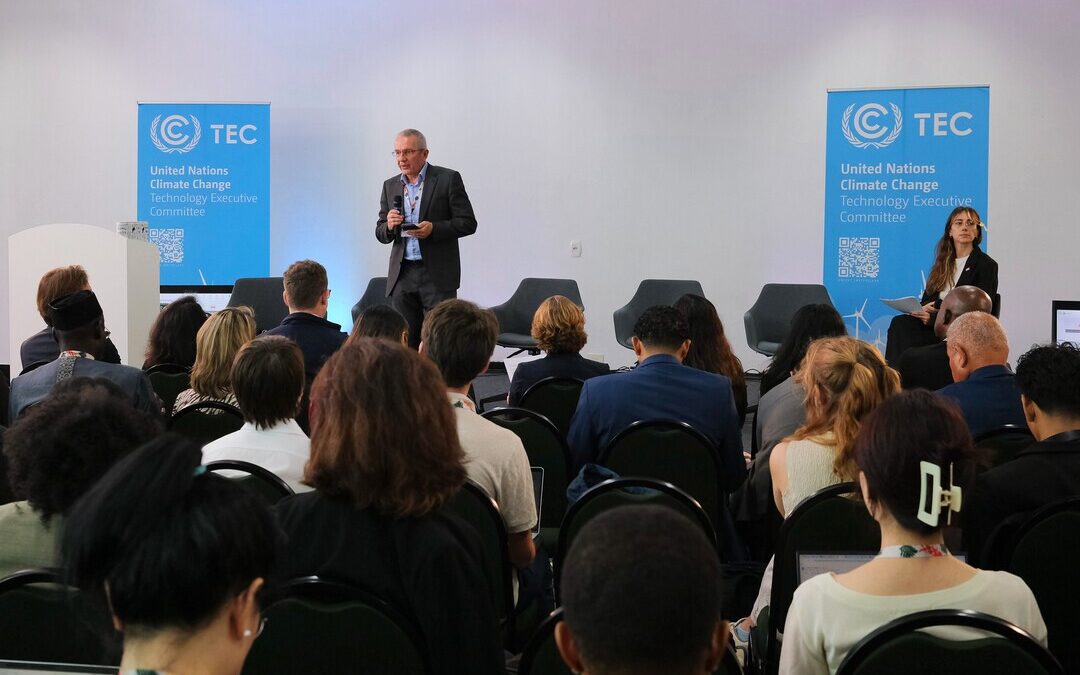Day 1: COP30 Opens With Unified Call for Technology-Driven Adaptation
COP30 sets a fast pace for climate action as nations unite to advance adaptation, technology and resilience efforts.
COP30 opened on Monday with a rare show of unity as countries adopted the conference agenda within hours, setting a fast pace for a summit focused on delivery and digital innovation.
Delegates also elected Ambassador André Corrêa do Lago as COP30 president, emphasizing Brazil’s push to make this a conference defined by implementation.
Agenda adopted as leaders stress collaboration
Parties moved quickly to approve the COP30 agenda. The early consensus indicated strong support for multilateral cooperation amid rising global tensions.
“Delegations reached a fantastic agreement,” Corrêa do Lago said, praising the swift decision. He added that the agenda would allow negotiators to begin intensive work and explain why new issues matter.
The Fund for Responding to Loss and Damage also advanced. It issued its first $250 million call for proposals just 2 years after being set up. COP30 CEO Ana Toni said the step proved that the summit was “a COP of implementation.”
Technology Takes Center Stage
Technology dominated the first day. The Green Digital Action Hub launched as a long-term platform anchored in Brazil. It aims to help countries adopt green digital tools and reduce the environmental footprint of technology use.
Another major launch, the AI Climate Institute, will train policymakers and technical experts in developing nations to use AI for climate action. It will offer hands-on labs, workshops and an open digital learning repository.
COP30 also introduced the Nature’s Intelligence Studio. The initiative will support nature-inspired innovation and protect bio-based intellectual property. Its research and policy programs will be headquartered in Belém.
Push to Expand Digital Public Infrastructure
Brazil’s innovation ministry, the Digital Public Goods Alliance and ITS Rio unveiled a new plan to scale digital public infrastructure for climate use.
The plan includes a global collection of open-source tools that address challenges in disaster response, water management, energy and agriculture.
A related innovation challenge selected five digital infrastructure projects. Each winner received $100,000 to test climate and social resilience solutions.
MDBs Double Adaptation Support
Multilateral development banks said they doubled adaptation finance since 2019. They delivered more than $26 billion to low- and middle-income countries in 2024. The banks also introduced new guidelines to track nature finance and help attract private capital.
The Race to Resilience coalition reported that its work helped 437 million people gain stronger climate resilience. It also supported the protection of 18 million hectares of land and ecosystems.
New Partnership Targets Hunger and Poverty
A new Climate-Resilient Social Protection and Smallholder Agriculture Finance Partnership launched under the COP30 Action Agenda. It will support national plans in Benin, Ethiopia, Kenya, Zambia, and the Dominican Republic. The partnership expands on the Belém Declaration on Hunger and Poverty, which 44 countries endorsed last week.
Breakthrough Tools for Climate-Smart Farming
Brazil and the UAE unveiled the world’s first open-source agricultural AI language model. The tool was developed with CGIAR, Embrapa, the Gates Foundation and ai71.
AIM for Scale also introduced an AI-based forecasting system designed to support more than 100 million farmers by 2028.
At the Agricultural Innovation Showcase, donors pledged over $2.8 billion for farmer adaptation. The Gates Foundation committed $1.45 billion to expand access to agricultural innovation in sub-Saharan Africa and South Asia. The Global Methane Hub raised $30 million to cut methane emissions from rice farming.
“Agricultural innovation is the engine of climate resilience,” said Martin van Nieuwkoop of the Gates Foundation.
Civil Society Mobilizes as Green Zone Opens
COP30 opened its Green Zone to the public, drawing civil society groups and private-sector partners. Panels focused on mobilization and youth leadership.
“Young people are now at the center of these spaces,” said Mikaelle Farias of the COP30 Youth Climate Champion team. She said the summit had the largest youth participation in three years.
Day 1 closed with optimism. Delegates said advances in adaptation finance and digital innovation showed that COP30 could shift global climate action from negotiation to real-world results. The message from Belém was clear: technology and inclusion can turn ambition into action.
Nirmal Menon
Related posts

Subscribe
Error: Contact form not found.


